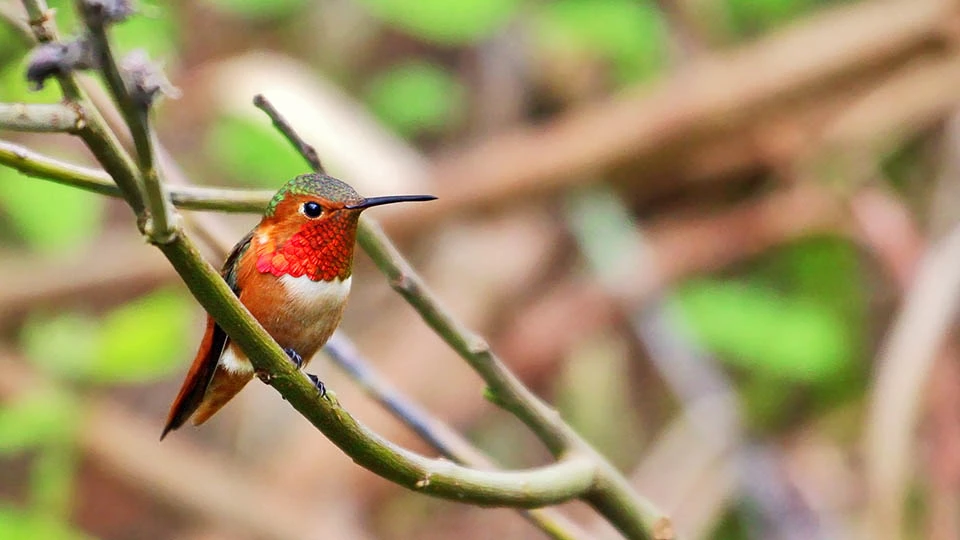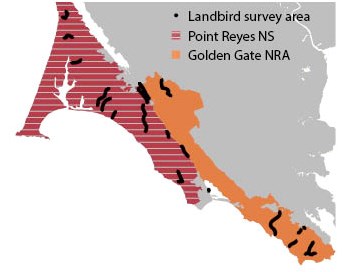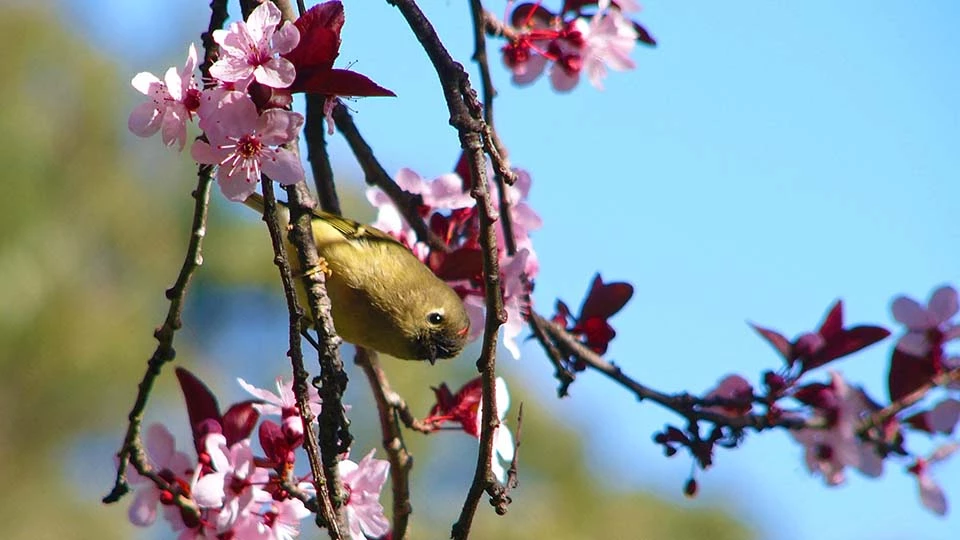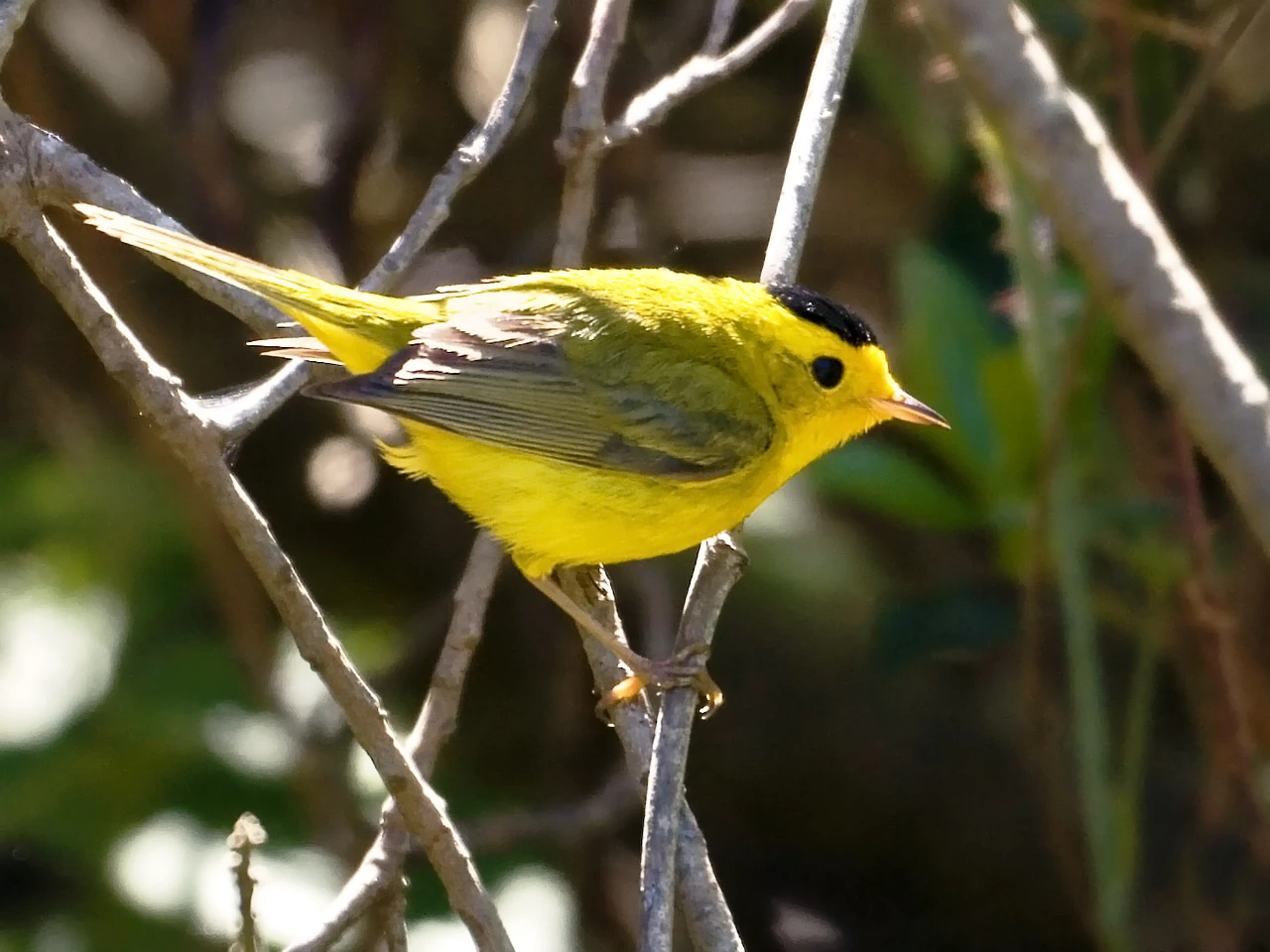Last updated: November 22, 2021
Article
Landbird Monitoring in the San Francisco Bay Area

NPS / Will Elder

Why Are Landbirds Important?
With their varied microclimates, large swaths of protected wild lands, and position along a major migratory pathway, the National Parks in the San Francisco Bay Area host some of the largest and most diverse assemblages of landbirds in the United States. Landbirds in the Bay Area produce a great deal of public interest. Besides their aesthetic value, landbirds are good indicators of changing ecological conditions such as climate. They are also relatively easy to monitor and are therefore well suited for community-level (multi-species) surveys. Golden Gate National Recreation Area and Point Reyes National Seashore have a long history of landbird monitoring, with some sites surveyed since the mid-1960s.

NPS / Will Elder
Why Do We Monitor Landbirds?
- To determine long term population trends for riparian-associated landbird species during breeding, fall, and winter seasons
- To determine long-term changes in productivity and annual survival for riparian-associated landbird species
How Do We Use the Monitoring Data?
- To inform decisions about issues such as changes in climate and habitat quality
- To evaluate management actions like invasive plant removal or habitat restoration
- To combine data with regional and national datasets to assess landbird population status and trends at broader landscapes

NPS / Will Elder
What Have We Learned?
Partners at Point Blue Conservation Science have found that landbird abundance has been generally stable throughout riparian areas at Golden Gate and Point Reyes over the last 11 to 15 years. Although there were some increases and some decreases, neither trend dominated. The most commonly detected landbirds in riparian habitat at the two parks included Song Sparrow, Swainson’s Thrush, Wilson’s Warbler, Allen’s Hummingbird, Fox Sparrow and Ruby-crowned Kinglet. Monitoring identified significant declines in four species, including Olive-sided Flycatchers, a California Bird Species of Special Concern, Ruby-crowned Kinglets, Golden-crowned Sparrows, and American Robins. However, monitoring also showed significant increases for Wilson's Warblers and Purple Finches.
For More Information
Inventory & Monitoring Program Manager, SF Bay Area NetworkJena R. Hickey
Links
San Francisco Bay Area Inventory & Monitoring Network
Pacific Coast Science and Learning Center
Summary by Sarah Wakamiya, August, 2014.
Download PDF from the NPS Data Store
